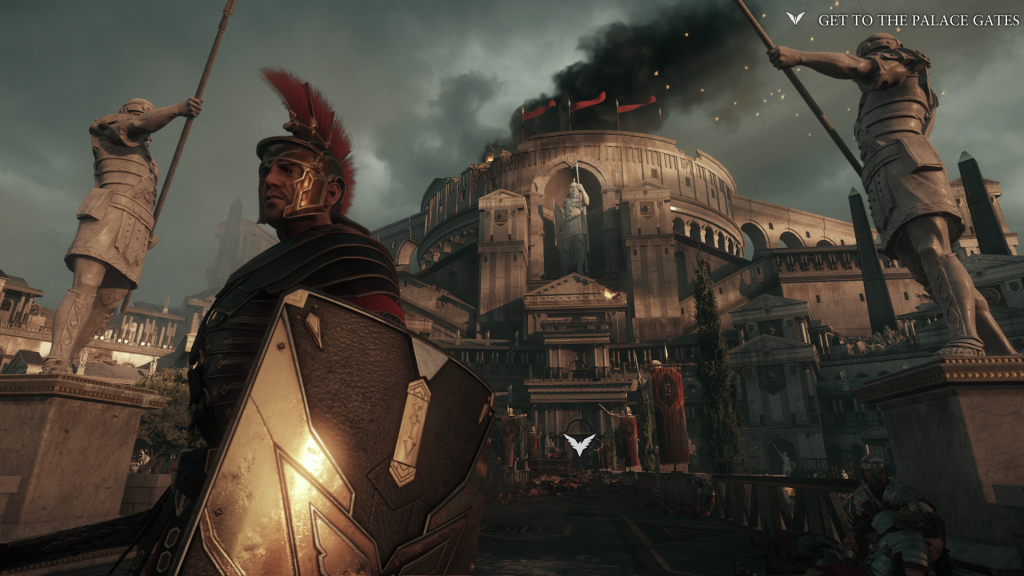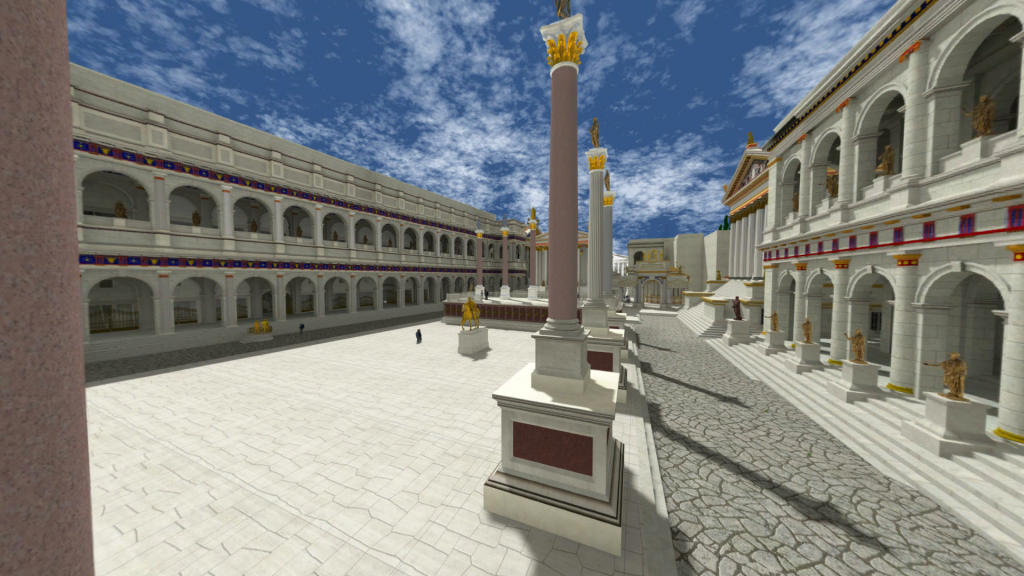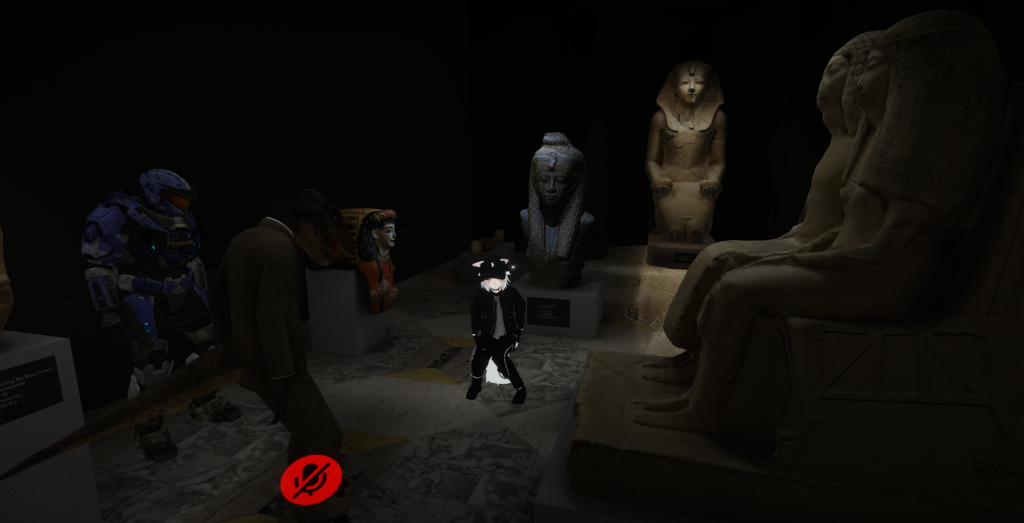As I am using these articles to explore the opportunities of several digital media for historians, I would like to focus today on the subject of video games, which have become an influential part of mainstream culture. Historians might be a bit reluctant to discuss them in combination with historical research, but I would actually like to argue in favour of this.
Historical themed video games
Video games with a historical setting are not new. Already in 1971, the first version of The Oregon Trail was released, which was a text-based strategy game in which the player controlled a group of pioneers following the Oregon Trail in the 19th century. Interestingly the game was not developed by actual game developers, but by three public school teachers.[1] One of them, Don Rawitsch, was a history teacher that was thinking about creative ways to make his lecture more interesting. Together with his colleagues who already had some experience with coding, the game was produced to be used in class. It turned out be a great success, as there were even students from other classes trying to join in.
Since then a great variety of video games with a historical setting have been released. In fact, it seems that almost every time period in history has already been explored. Video games vary in genre, which also makes that two games exploring the same time period can give a completely different perspective. Besides that, games vary greatly in their historical accuracy.
Historical accuracy
When discussing historical themed video games, we tend to address their so-called historical accuracy. Some developers do their best to make their games as historically accurate as possible. The developers of Assassin’s Creed are known for their extensive research behind recreating historical settings.[2] On the other hand there are also developers that are less reclined on making sure their game is in line with historical reality. Although a fun game to play, Ryse: Son of Rome is far from trying to portray a realistic picture of ancient Rome.

Players sometimes criticize developers when they think a game lacks historical accuracy. Fans of Battlefield V lashed out on Twitter as they believed that the decision to add female characters to the game was not historically accurate.[3] Despite some criticism, it seems however that other issues are more important for players, such as graphics and gameplay. These are noticed directly while playing, whereas most players only have a general idea about historical accuracy on basis of which they can judge the historical details of the game. Besides that, other issues like computational limitations might also influence the choices of game developers in pursuing historical accuracy.[4] Historical accuracy is thus not so much an absolute goal, it is a scale in how far a game achieves a credible historical narrative.
As historical accuracy can never be fully reached in video games, then are they still valuable for historians? I would like to argue that in a certain way the incompleteness of historical accuracy actually creates opportunities. By critically looking at a game, historians can share their knowledge and discuss with others where a game is in line with historical reality and where it is not. The YouTube channel The Great War, hosted by historian Indy Neidell, for example made a video in which they did this with the trailer of Battlefield 1. It shows that historians can work with both features that are in line with historical reality and those that are not. These flaws in historical accuracy do not disqualify video games as a tool for historians, in fact it might even make them more useful to share our knowledge with the outside world and challenge us to reflect to our own knowledge.
Creating (in) video games
So what about historians creating video games? As the example of The Oregan Trail highlights, video games do not necessarily have to be created by game developers and can also be developed as an educational tool. It might be argued however that game development has evolved enormously since 1971 and nowadays more skills and manpower is needed. So in how far can we still achieve this?
The closest example that I could find is the project Rome Reborn, which was curated by researchers across several universities. The project generated multiple 3d models of ancient Rome that can be digitally explored. The tour through the city is assisted with audio in which the history of the unique locations is elaborated upon. Besides an educational tool, from a scientific point of view it also challenges the creators to think about the sources that are available and what knowledge they are still missing to create their version of ancient Rome. Although Rome Reborn is more of a simulation than a video game, interestingly they actually added in somewhat of a gameplay mechanism as the user can gain achievements and can level up by answering questions based on the information given in the simulation.

Besides creating our own projects, we can also build upon existing video games. The project RoMeincraft aims at teaching the public about archaeology of the Roman limes with the help of Minecraft. Besides that, a few museums have exported 3d scanned versions of their museums and objects into VRChat, which now allows users to digitally explore these museums and their artefacts. By using an existing game instead of creating one of our own, we generally don’t have to worry about all the facets of modern game development and still can actively create something for educational and research usages.

In the end, there are many uses for video games to both educate the public about history but also to challenge ourselves in our own expertise. Video games are not just a pastime, they can also be functional devices for research and education.
[1] Kevin Wong, The Forgotten History of ‘The Oregon Trail,’ As Told By Its Creators (2017) <https://www.vice.com/en_us/article/qkx8vw/the-forgotten-history-of-the-oregon-trail-as-told-by-its-creators>.
[2] Read for example: Andrew Reinhard, Consulting for Ubisoft on Assassin’s Creed: Odyssey (2017)<https://archaeogaming.com/2019/04/19/consulting-for-ubisoft-on-assassins-creed-odyssey/>.
[3] Megan Farokhmanesh, Battlefield V fans who failed history are mad that the game has women in it (2018) <https://www.theverge.com/2018/5/24/17388414/battlefield-v-fans-game-women-world-war-2-history>.
[4] Some discussion about this can be found in: William Feenstra, Virtual shooting vs. actual learning: examining university students’ ideas about video games as tools for learning history (2011).


1 Response
[…] This blog was written for my university course; the original post can be found here. […]